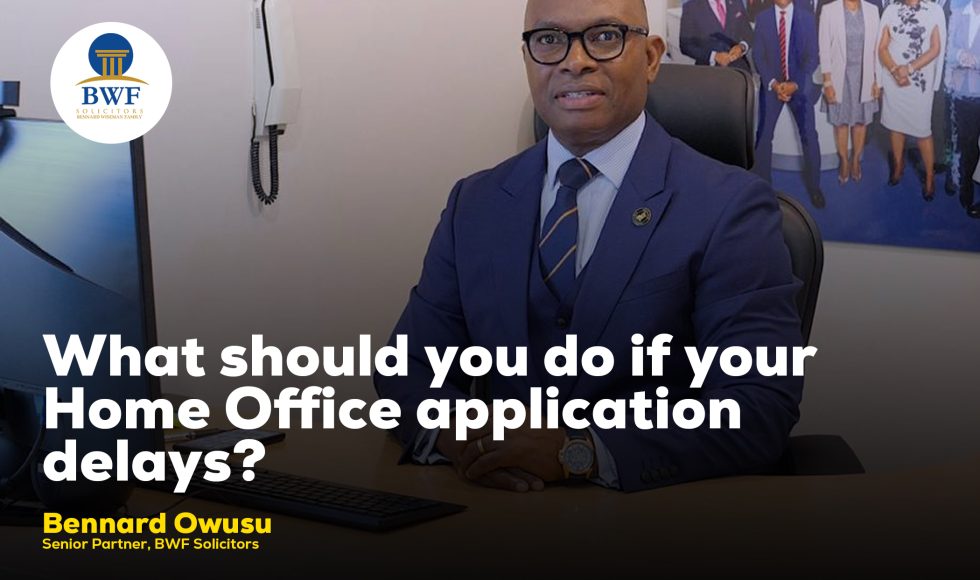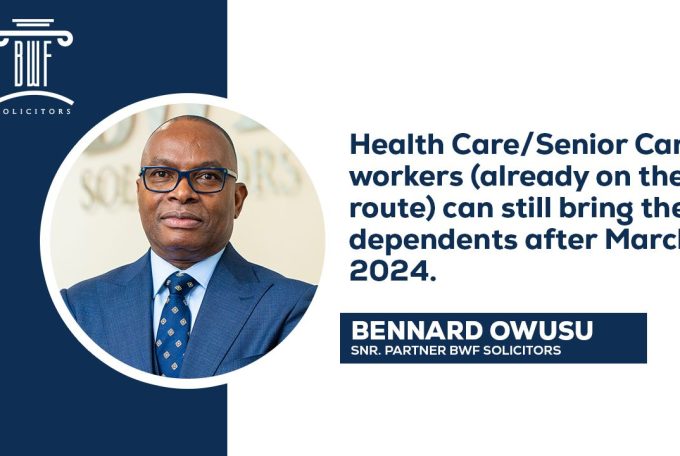There are many people waiting for decisions on their applications to the Home Office. Such delays can be profound and have affected others’ right to work in the U.K. Unreasonable delays at the Home Office for UK visa and immigration applications can sabotage travel plans, prolong uncertainty, and cause hardship by preventing applicants from working in the UK or spending time with loved ones.
Therefore, it is critical that applicants are informed about the UKVI service standards and understand how to file a complaint or speed up the procedure when there are delays.
The UKVI service standards, therefore, need to be our first point of reference. This will make all applicants aware of the terms of their “service contract” with the Home Office.
The Home Office publishes estimated waiting times for decisions on applications submitted at https://www.gov.uk/guidance/visa-decision-waiting-times-applications-inside-the-uk and outside the UK at https://www.gov.uk/guidance/visa-decision-waiting-times-applications-outside-the-uk on its website.
Additionally, it makes its service standards available online at https://www.gov.uk/government/organisations/uk-visas-and-immigration/about-our-services
- Step 1
Contact the relevant department of the home office. Use the contact link below: https://www.gov.uk/contact-ukvi-inside-outside-uk
When you call or write to the appropriate department, you should refer to your Home Office reference number(s). The reference numbers can be obtained in your previous correspondence with the Home Office or on your application form(s). You must state when your application was submitted, when your biometrics were enrolled, and also refer to the published processing time on the Home Office website.
You should also explain how the delay is impacting you and your family, for example, if it is affecting an employment offer or is separating you from loved ones.
You can request that the application be expedited or that the Home Office reimburse you for any priority or super-priority service fees you may have paid.
- Step 2: Complain
If the requirement to fast-track the application doesn’t work, you may make a formal complaint referring to the service standards. Use this website: https://www.gov.uk/complain-uk-visas-immigration.
Ensure that you have any Home Office reference numbers that can be useful with the complaint.
If you’re making a complaint on behalf of someone else, you’ll need their consent, along with their name and date of birth. Alternatively, you may write a letter to complaints@homeoffice.gov.uk.
- Step 3: Use Your Local MP
If any of the Home Office’s internal complaints processes fail, you may ask your local MP to intervene on your behalf. The Parliament website indicates that you should contact your MP “if you feel you have been treated unfairly by a government office or agency.”
The simplest method is to write a letter to your MP at the House of Commons, London SW1A OAA, or email them using the Directory of MPs (https://members.parliament.uk/members/Commons).
- Step 4: Complain to the Parliamentary and Health Service Ombudsman.
By law, the Ombudsman can only look at complaints about UK government departments and other UK public organizations if a Member of Parliament (MP) refers the complaint to them.
You can complete their complaint form here: https://www.ombudsman.org.uk/making-complaint/complain-us-getting-started/complaint-forms and request your constituency MP or their office to sign it.
- Step 5: Pre-Action Protocol Letter
If all the above fails, you may threaten the Home Office with judicial review. This is a complex area of law, and you will definitely need the assistance of a lawyer. The first step is to send a pre-action letter. Send this letter to the Home Office if you intend to challenge a decision or action made by the department.
We have added a link for a template. https://www.gov.uk/government/publications/pre-action-protocol-for-judicial-review
If the Home Office has not responded within 14 days of receiving the Pre-Action Protocol Letter, you can then lodge a judicial review. You can then make an application to the Upper Tribunal (Immigration and Asylum) Chamber for permission to apply for judicial review. This application is normally made on paper, and without a court hearing, the court will grant permission or refuse your application on paper. You may repeat the application at an oral hearing if the paper application is refused.
We hope the forms and links embedded in this short article are helpful. However, should you need any assistance, do not hesitate to contact us.
Need more information? Get in touch with BWF Solicitors’
UK: +44 20 8493 7340
GH: +233 55 589 5959
Emergency: +44 77 1276 1884
Website: www.bwfsolicitors.com
Email: admin@bwfsolicitors.com
About the writer (insert writers image)
Bennard Owusu is the senior partner of BWF Solicitors, an award-winning law firm in London. He is also dual qualified as a barrister in Ghana and Solicitor to the Senior Courts of England.
He regularly writes opinions and advises Local Authorities; Solicitors and has represented clients in Family and Immigration cases where the main issues are aspects of Ghanaian Law Usages and Practices; Marriages; Children Proceedings; Inheritance and Reciprocal Agreements.
Some of Uncle Ben’s advice has been reported in English law reports. He recently won the Black British Business Award 2020 in the category of Professional Services Senior Leader of the year.







